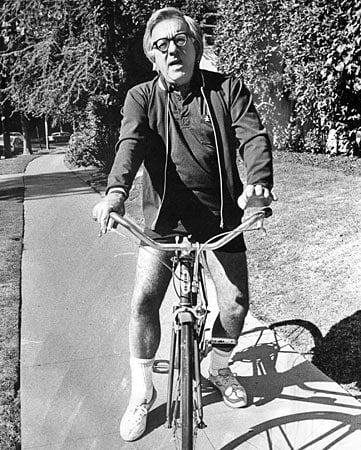Ray Bradbury, RIP
By:
June 6, 2012

Everything I know I learned from Isaac Asimov and Harlan Ellison, and almost everything I felt I learned from Ray Bradbury, who died yesterday. Other sci-fi and comic writers made life safe for sensitive geeks to shut themselves away from the world and dream of others, but Bradbury threw open the doors and windows and made us respond to something with all that sensitivity. The feel of our own planet’s sunshine and summer breezes, the companionship of our kin, the shelter and possibility of peaceful streets. And the nightmare negative images of shut-down futures and faroff desert worlds. Bradbury knew that most Americans were an alien presence on the land we’d overtaken (allegorized in the conquest of Mars), and that he would always be out of place as a dreamer who looked closely at his country and ventured to look up from it. He was like the John Wayne of bookish 20th century misfits; rooted in classic small-town community but providing a model for the life of reflection. He lasted across the threshold of a century, but was sharply aware of how temporary all existence is; in this way his nostalgia for neighborhood America was not a rebuke to modern understanding but a mindful memorial to fragile ways of life; his dystopias and apocalypses not a condemnation of troubling trends but a prescient elegy for how unlasting even the certainty of tyranny would be; his otherworldly species rendered extinct a symbol of the sad passing of his own interplanetary childhood fantasies to a grim galactic colonialism — and a fresh frontier, embodying both the past that we trample unheeded and the possibilities that always open ahead. He could fall back on values too certain for an ever more complicated real-life future, and apply an optimism almost unreasonable in light of the obstacles faced by people not born into his tree-lined, friendly world — but we needed his good intentions, and his reminder, no matter how wide the gulf between our declining reality and his increasingly buoyant fictional visions, that the future is a choice.
